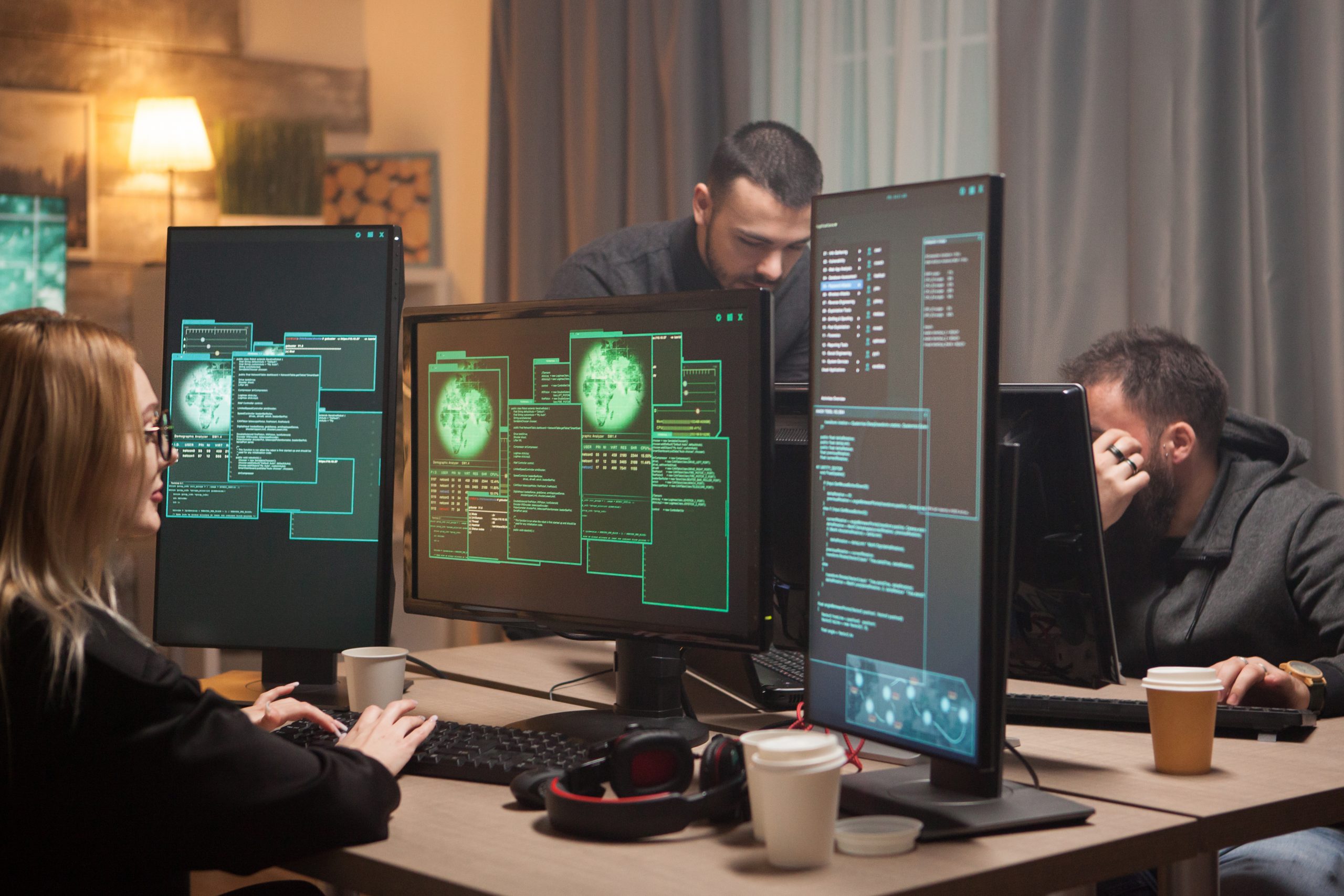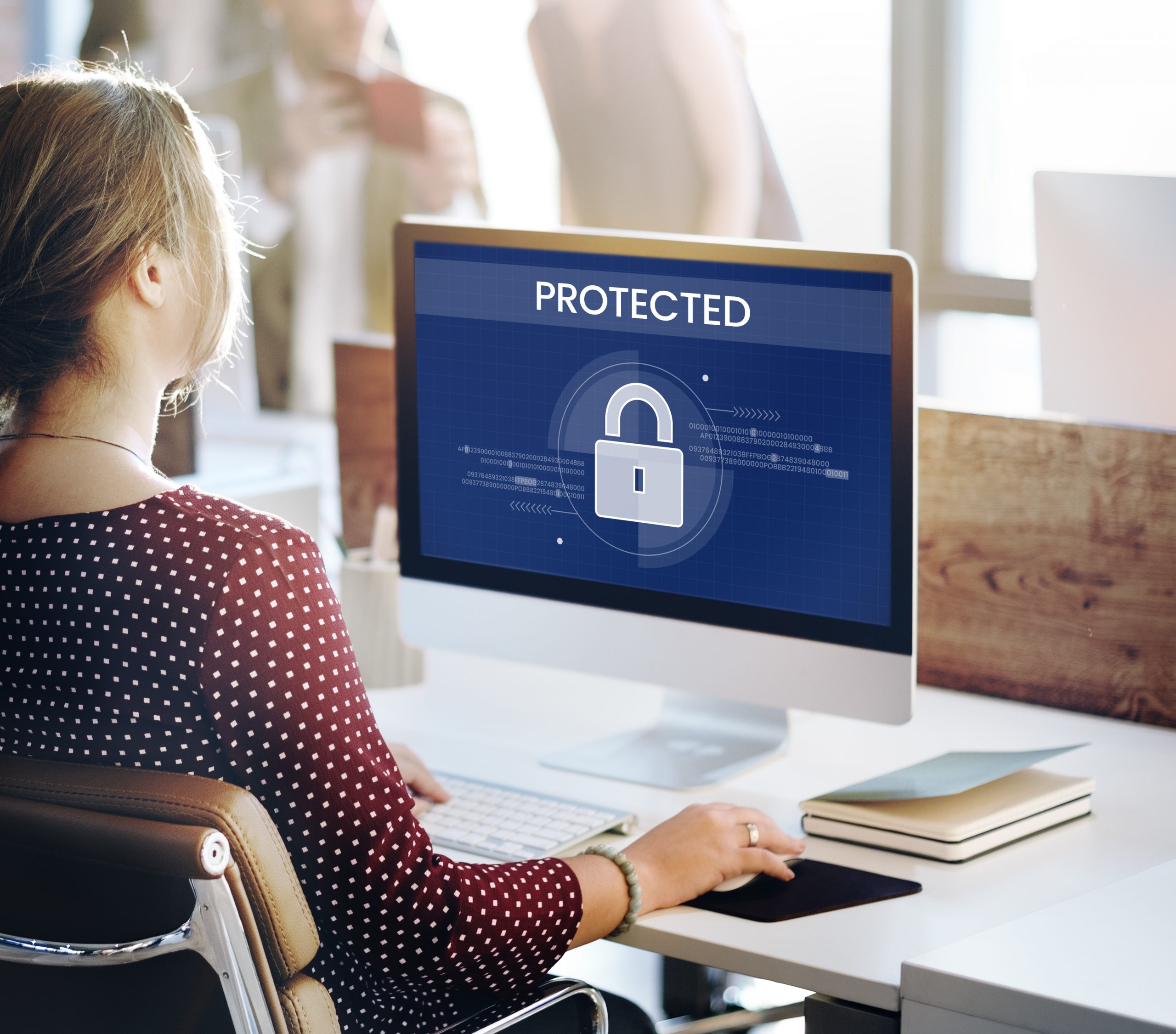
Remote working is a trend that is increasingly affecting jobs, so in many places it has gone from being a trend to becoming a permanent feature. It is therefore vital to ensure remote security, as digital workspaces are just as important as any office, and even more critical due to the growing increase in cyber threats. For this reason, more and more companies are investing in endpoint protection and data privacy.
Remote security not only ensures data privacy but also employee information, so a secure company is one that provides confidence to employees and encourages compliance with rules. Below, we will analyze best practices for remote security in virtual work.

What is a secure remote work environment?
A secure remote work environment is one that allows employees to exercise their autonomy and productivity safely from anywhere, even while traveling, without compromising the privacy of company data and corporate systems.
This approach is often based on endpoint protection, one of the most effective cybersecurity strategies. Companies should always invest in powerful technology solutions.
The importance of remote security
We live in an almost completely digital world, so remote security cannot be overlooked; it is essential to protect confidential information from any cyber threat, and endpoint protection such as antivirus and firewalls is key to this.

Remote security not only ensures data privacy, but also enables compliance with numerous industry regulations, regardless of your company's sector. All areas of healthcare, finance, law, and more have strict regulations for data handling and protection, and failure to comply with these regulations can result in penalties and damage to the organization regardless of whether its employees are located remotely, hence the importance of investing in good endpoint protection.
But it's not all bad news and cause for concern; remote working represents an incredible solution for business continuity, making it possible to keep a company active despite pandemics, natural disasters, or any other kind of unforeseeable disruption. This advantage, combined with a secure digital infrastructure, guarantees unlimited productivity.
8 best security practices for remote working environments
To ensure remote security, it is necessary to combine a series of technological practices ranging from endpoint protection by cybersecurity professionals to employee training to enable them to recognize digital risks and fraudulent platforms, thereby ensuring not only data privacy but also the integrity of every operation they perform on the internet.
Use of secure passwords
This is one of the fundamental measures of remote security. Employee passwords should be long and complex, combining numbers, letters, and symbols, and this should not be just a recommendation but a company policy, as should changing passwords regularly, at least every 180 days, and prohibiting the use of the same password for different accounts.

Two-factor authentication
In remote security, having two verification factors adds an extra layer of security to any system, and when combined with endpoint protection methods, it is quite difficult for malware to compromise the company's data privacy in any environment.
This two-factor combination can be a password plus a fingerprint or face ID, or a password plus a temporary one-time code that is generated every 30 seconds in an application or sent to your email.
Use software with updated patches
Remote security software patches are filters that detect and stop security breaches caused by cybercriminals. For this process, all endpoint protection must be up to date, as well as applications, operating systems, and any security tools present in the system.
Secure remote access
Accessing work software remotely allows for data protection and privacy between the corporate network and remote workers. This type of access provides encrypted connections, making it unlikely that cybercriminals will be able to access or compromise confidential information. There are a number of tools for managing remote teams that ensure security and productivity.
Educate employees about remote security
Employees must be trained to recognize risks and respond appropriately to potential threats that seek to violate data privacy. Basic training on endpoint protection, phishing identification, and safe browsing habits is usually sufficient to prevent them from taking risks in digital environments.
Secure communication tools
Remote work requires the use of external applications for effective remote communication, so it is advisable to use secure, encrypted, certified media with encrypted and protected messaging. This will prevent unauthorized access to meetings and participant data.
Some of these are Zoom, Telegram, WhatsApp, Google Meet, Slack, Voxer, and more. However, it is also recommended that you use secure passwords and links, and avoid opening links from unknown or suspicious sources.
Security incident response plan
Remote security is not a one-time configuration event; it is a process that requires continuous verification and updating. Therefore, there should be a team dedicated to managing data privacy and endpoint protection tools to determine immediate responses to any potential attacks. This proactive approach allows everyone to be prepared and respond immediately, maintaining total security in remote operations.
Establish remote work policies
Remote security encompasses employee confidentiality. It is recommended to execute detailed contracts on the use of company and customer resources and data, thus covering all legal aspects and ensuring that remote employees are held accountable for the security of their actions.
This will effectively integrate with the company's training and data privacy policies, using secure communication tactics and implementing all security recommendations.

Start with Alpha Solutions
At Alpha Solutions, we take remote security very seriously. We are aware that it is not only a necessity but also a fundamental part of business success. We ensure that we provide trained, reliable, and secure talent with the knowledge to detect suspicious behavior and threats and report them immediately.
We ensure long-term growth potential and training plans with continuous and constant learning, always striving to offer the best talent and retain it in our favor, in a safe and trusting work environment.
We are a leading company that offers a secure remote workplace from anywhere in the world, ensuring productivity and minimizing cybersecurity issues. Our freelancers are available with the best performance and tools for your company and its remote work needs.
Related Posts
Developing Soft Skills for Better Interviews and Client Relationships
When you deliberately invest in freelance soft skills development, you increase your chances of winning…
Key Skills to Excel as a Freelance Virtual Assistant
The role of virtual assistant is one of the few professions that is not threatened…
Enhancing Interviews with Emotional Intelligence and Non-Verbal Communication
Job interviews are not just about professional experience; 70% of success is emotional intelligence in…
Effective Communication Strategies for Remote Teams
Effective communication is essential in any type of work, but when it comes to remote…








 test
test